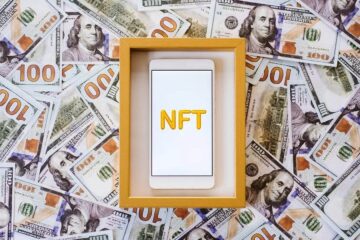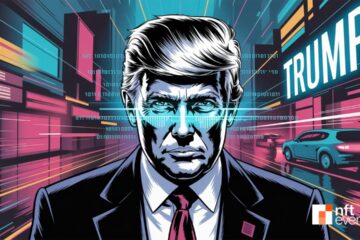Gamers have traditionally invested countless hours honing their skills, acquiring items, and progressing through levels, yet the tangible value of their endeavors has remained locked within the game’s ecosystem. The model is a simple one: players get the enjoyment of their experience while studios and publishers capture all of the value that they generate.
The unfairness of this system has led, inevitably, to the growth of the blockchain-powered gaming industry. The fact that players’ achievements, no matter how impressive, could translate to fleeting experiences rather than monetary rewards, fuelled the ambitions of developers and builders who recognized gamers’ appetite for incentives. There had to be a better way.
Web3 gaming presents a radical departure from the old model, introducing new paradigms where player engagement translates into real ownership and economic opportunities, particularly through sophisticated mechanics like play-to-earn, create-to-earn, and play-to-airdrop. Participation in decentralized autonomous organizations (DAOs), meanwhile, lets players directly influence game development and governance.
This fundamental shift, which has taken place over the last five years, represents a democratization of gaming value that sees players become stakeholders rather than mere consumers. Although web2 publishers continue to retain strength and influence in the market, the natural question to ask is, for how long?
The Evolution of Value Tokenization in Gaming
NFTs were at the center of the first wave of value tokenization in web3 gaming, with blockchain technology conferring in-game assets like characters, weapons, skins, virtual land with both intrinsic value and provable ownership. These digital assets, which could be freely traded freely on open markets, created lucrative opportunities for players beyond the enjoyment they could derive from gameplay.
Maligned by some due to their volatility, NFTs nonetheless had a moment in the sun when enterprising players made plenty of profit in a hot market. When the macro picture soured and NFT valuations fell, some projects were abandoned and many players left disgruntled.
Ultimately, though, NFTs have remained a cornerstone of blockchain-powered games. Indeed, gaming token launches increased by 200% year-over-year (YoY) in 2024. Funding for web3 gaming titles and infrastructure also grew by 17% in the same period, indicating strong investor confidence in this growing sector.
DAO tokens represent the next evolution in this space, tokenizing something even more fundamental: the collective power of gaming communities. While NFTs capture unique assets, fungible tokens represent abstract value in the form of community coordination and cultural capital.
If social media has given users a voice in the cultural consciousness, DAO tokens have granted holders a share in the collective decision-making power of a gaming community, enabling them to influence development and participate in resource allocation.
The value of such tokens extends beyond mere governance rights, too, as the assets essentially reflect the cultural and social capital of the gaming ecosystem. Analogous to the way in which tokens locked in a DeFi protocol show its Total Value Locked or TVL.
Alien Worlds’ Multi-layered Approach to Tokenization
The Alien Worlds metaverse is a prime example of a multi-layered tokenization approach, featuring as it does both fungible and non-fungible tokens. The world’s most actively played on-chain game, it features six DAOs, known as Planetary Syndicates, each of which has evolved into distinct cultural entities with their own character and community dynamics.
The Planet Kavian DAO, for example, is notable for having organized the sci-fi game’s first physical meetup and sent representatives to industry events like 3XP. A campaign conducted by Neri’s Syndicate also saw an enormous billboard promoting Alien Worlds appear on the Las Vegas Strip. Among other duties, Syndicates fund mini-games and events linked to their own planets’ mythology and land, presiding over their own treasury of Trilium (TLM) tokens.
In 2024, Alien Worlds pioneered the concept of tokenized lore, adding another layer to the growing cultural TVL within its ecosystem. Through its primary contributor Daoco, the game has implemented a system wherein the community actively participates in creating and canonizing the game’s backstory through token-based voting mechanisms.
The Alien Worlds Tokenized Lore Book serves as a foundation for this community-driven narrative expansion, empowering players to contribute to the game’s unfolding story universe and potentially receive funding through its Galactic Hubs grant program.
It is an approach that has catalyzed numerous community initiatives that spotlight the synergy between NFTs, DAO tokens, and storytelling. One Galactic Hubs-funded project, an autobattler game called Battlefleet Armageddon, recently introduced five new community-named battleships with accompanying lore.
The Starblind comic project, meanwhile, has laid groundwork for an upcoming first-person shooter game, Siege Worlds, while Meta Battler’s GHubs-sponsored tournament saw massive NFT engagement with over 22,000 Alien Worlds NFTs synchronized and 300 pages of a new lore-based comic, Alien Hunter, collected.
All of which is to say that Alien Worlds uses both NFTs and DAO tokens to enhance engagement and grant players more autonomy and influence.
Democratizing Virtual World Governance
Alien Worlds is not alone in its pursuit of a more democratic gaming landscape. Ethereum-based game The Sandbox, which boasts over 5.7 million users, provides another compelling example of sophisticated tokenization.
A blockchain-based virtual world, The Sandbox enables its players to build, own, and monetize their experiences across gaming, entertainment, music, and art sectors. In 2024, it introduced its own DAO, with voting power determined by players’ holdings of both $SAND (a fungible token) and $LAND tokens (non-fungible). Thus, both active players and virtual landowners will have a say in things like gameplay upgrades, feature roll-outs, tournaments, and rewards programs.
When unveiling the Sandbox DAO, co-founder and COO Sebastien Borget referred to players as “citizens of a digital nation in the making” who merited the power to “decide how the platform should evolve and what initiatives it will support.”
The Future of Gaming Value
The transformation in how gaming value is created, captured, and distributed is ongoing. With blockchain enabling increasingly complex forms of tokenization, more power and value is being put into the hands of players and developers.
In the years to come, and particularly with the evolution of AI, expect to see even more innovative approaches to enhancing the gaming experience, ultimately creating more rewarding ecosystems for all participants.
 Bitcoin
Bitcoin  Ethereum
Ethereum  Tether
Tether  XRP
XRP  Solana
Solana  USDC
USDC  TRON
TRON  Lido Staked Ether
Lido Staked Ether  Dogecoin
Dogecoin  Figure Heloc
Figure Heloc  Cardano
Cardano  Bitcoin Cash
Bitcoin Cash  Wrapped stETH
Wrapped stETH  WhiteBIT Coin
WhiteBIT Coin  Wrapped Bitcoin
Wrapped Bitcoin  Wrapped eETH
Wrapped eETH  USDS
USDS  Chainlink
Chainlink  Binance Bridged USDT (BNB Smart Chain)
Binance Bridged USDT (BNB Smart Chain)  Monero
Monero  LEO Token
LEO Token  WETH
WETH  Stellar
Stellar  Coinbase Wrapped BTC
Coinbase Wrapped BTC  Sui
Sui  Ethena USDe
Ethena USDe  Zcash
Zcash  Litecoin
Litecoin  Avalanche
Avalanche  Hyperliquid
Hyperliquid  Shiba Inu
Shiba Inu  Hedera
Hedera  Canton
Canton  USDT0
USDT0  sUSDS
sUSDS  World Liberty Financial
World Liberty Financial  Dai
Dai  Toncoin
Toncoin  Cronos
Cronos  Ethena Staked USDe
Ethena Staked USDe  PayPal USD
PayPal USD  Polkadot
Polkadot  Uniswap
Uniswap  USD1
USD1  Mantle
Mantle  Rain
Rain  MemeCore
MemeCore  Bittensor
Bittensor 


